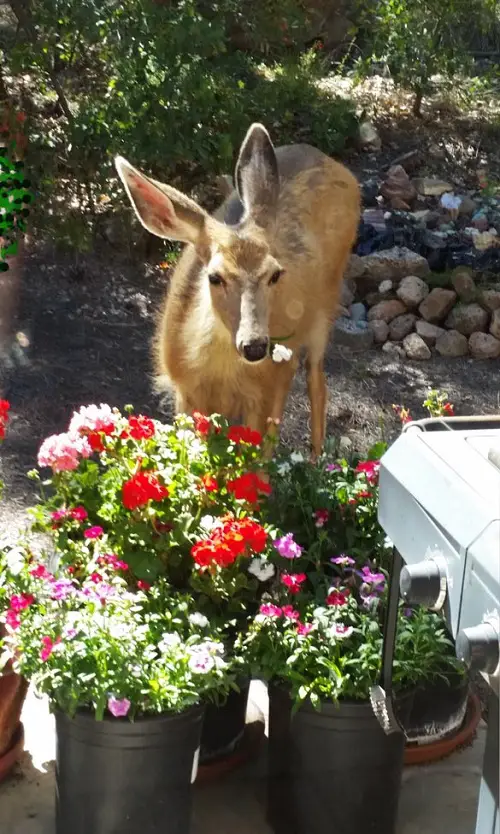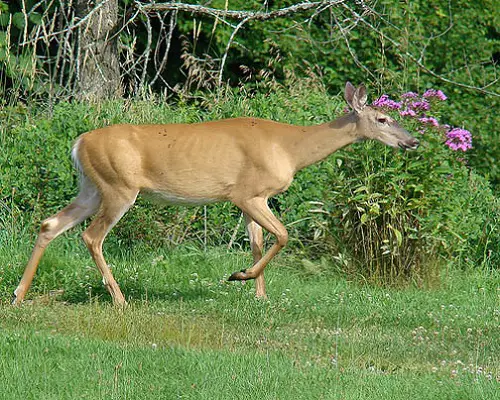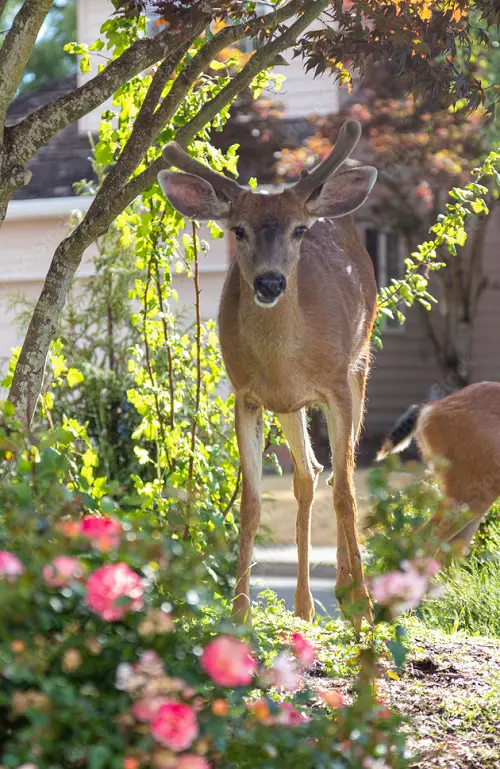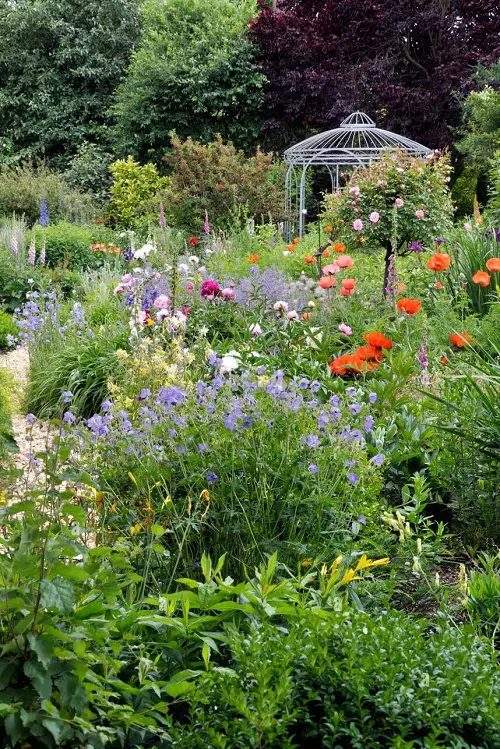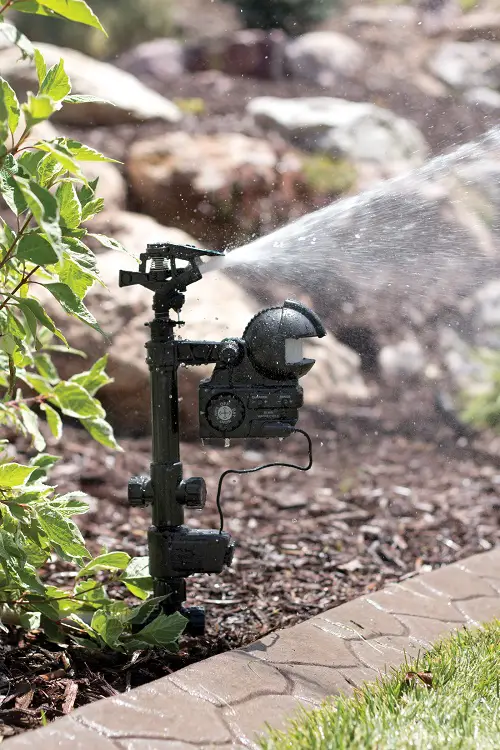Do Deer Eat Geraniums? Find the answer and explore some really effective gardening techniques to keep them away for good.
Do Deer Eat Geraniums? If you have this question in your mind and are planning to grow these flowers, then this is the guide you need!
Find out if Deer Eat Verbena here
Geraniums and Deer
Pelargoniums, commonly known as annual geraniums, are relatively low-maintenance and, thankfully, not attractive to deer and most other common garden pests.
Deer usually prefer to feast on plants like hostas, strawberries, and tulips instead. However, it’s worth noting that in times of food scarcity, particularly during the colder months spanning from October to February, deer may resort to consuming any available vegetation, including pelargoniums.
Do Deer Eat Geraniums?
So, Do Deer Eat Geraniums? While geraniums are not deer’s preferred food, these omnivorous animals generally find the strong scent, bitter taste, and fuzzy texture of these flowering plants unappealing. Moreover, geraniums contain toxic elements, further deterring deer from consuming them.
However, in cases of food scarcity, deer may occasionally resort to eating geraniums. It’s important to note that deer have a tendency to consume a wide range of plants with flowers, including strawberries, tulips, and hostas.
Deer are typically drawn to lush green gardens, even when geraniums are present. Additionally, geraniums cannot be relied upon as deer-resistant plants during the cold season since many plants produce flowers at this time, which can attract deer.
Here are the Best Deer Resistant Plants to keep them away!
Why Do Deer Eat Geraniums?
During the colder months from October to February, when there is a scarcity of food, deer may consider geraniums as a delicacy to avoid starving. However, in warmer months, deer are likely to have other plant options available to them.
Find out if Deer Eat Zinnias here
Tips to Keep Deer Away From Geraniums
1. Surround with Other Plants
To create a deterrent barrier around your garden, consider incorporating toxic or deer-resistant flowers such as sage, peonies, and irises.
Planting these flowers alongside your geraniums can help discourage deer from approaching. Sage, mint, basil, and lavender are examples of plants with pungent aromas that deer generally dislike.
2. Fencing
Fences serve as a barrier that deters deer from entering your property. Depending on your preference, you can opt for materials such as black mesh, tall metal T-bar garden posts, electric fencing, or wooden fences.
It is important to ensure that the fence is sufficiently high, ideally around 8 feet tall, as deer are known to be skilled jumpers and can easily clear a 6-foot obstacle.
Here are some awesome plants you can grow as fence
3. Use Auto Activated Sprinkles
For optimal effectiveness, install motion-sensor sprinklers near or in close proximity to the garden. When a deer approaches the garden, these sprinklers will be activated, deterring the deer from getting any closer.
4. Use Repellents
For a DIY repellent, you can prepare a mixture using 2 eggs, hot sauce, garlic, and 2 cups of soapy water. Allow the mixture to sit overnight, and then thoroughly spray the entire flower bed, making sure not to miss any spots.
This homemade repellent can help deter deer from approaching and damaging your plants.


